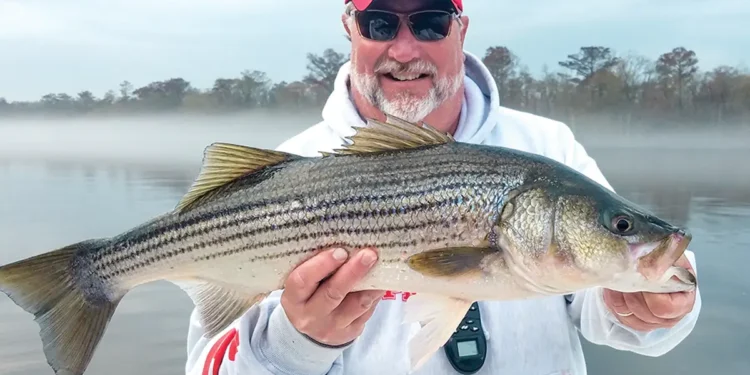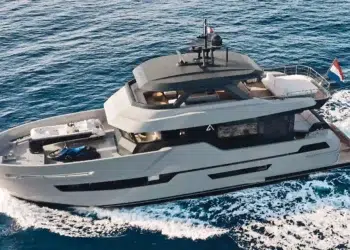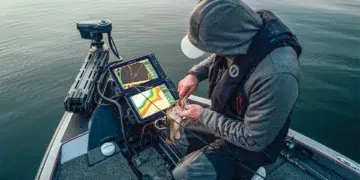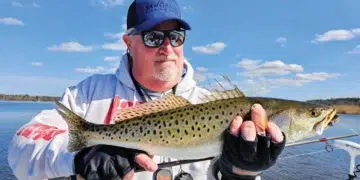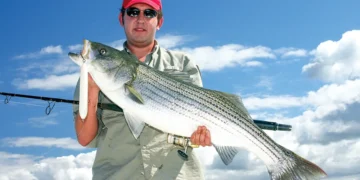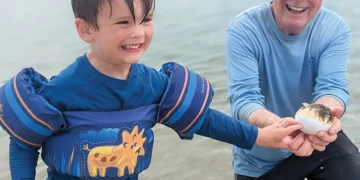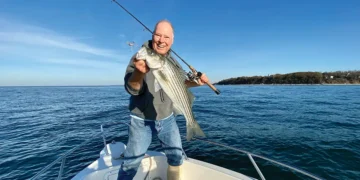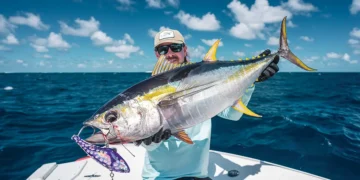Work to maximize quality time on the water rather than casting blindly for hours.
I’m not sure exactly when it happened, but at some point in the last millennium, the idea took hold within the fishing community that to be a serious angler you had to put in a ton of hours. No doubt there’s truth to the theory, but from my experience, it seems there’s little need to squeeze them all into a single day as many people try to do.
Unless you make a living as a professional angler, you can get as good at the game as you’ll ever need to be by spending quality time on the water, i.e., quality over quantity. Following this logic can lead to solid catches while leaving enough time in your busy schedule to mow the lawn, trim the hedges, fix the sink, spend time with family, and do all those other home-based jobs, chores, and pleasantries that might keep you from pursuing your favorite target species yet another day.
Also Read
Born to Roam: Inside the Outer Reef 780 Adventure Explorer Yacht
By Kevin KoenigTruth be told, I’ve long had a soft spot for Outer Reef. Ever since a sojourn Down Under...
I’m not saying don’t fish all day long if you have the time. I’m just pointing out that fishing, like everything else in life, needs to be balanced against other responsibilities, activities, and family matters. If you can basically catch the same number and size of fish in a shorter period, that might be a good route to consider under looming time constraints. Of course, all this must be considered in terms of what’s reasonable for the species you chase. By definition of distance, technique, and prolonged battles, offshore tuna and marlin almost always require a full-day trip or longer. Conversely, many inshore species are found minutes from the marina and most have well-documented peak feeding periods.
Subscribe Here For More Boating Content
Dusk and dawn are nearly universal times of increased feeding activity for both predators and bottom-feeders. It’s hard to imagine how often I’ve recorded my best fishing action of the day before 8AM or after 6PM. It’s while the sun is lower on the horizon that many predatory species like to ambush prey and, since a fair number of bottom-feeders don’t chew hard at night, they often want a snack when the sun comes up or just before dark. These time slots also see cooler temperatures, a positive consideration for both fish and humans during the dawg days of summer. Overall, I would favor a sunrise start on almost any given trip were it not so dang early, so about half the time I opt for my second-favorite slot, the after-dinner hours.
For bigger predators, you might also consider fishing after dark. In this time frame, especially for species that love to patrol shadow lines like snook, striped bass, redfish, and weakfish, my sweet spot falls between 11PM and 2AM.
With a basic understanding that low-light shifts generally trigger a feeding response, you can begin to align them with other known feeding triggers to increase your odds even more. Many bottom-feeders, like sheepshead, snapper, triggerfish, sea bass, blackfish, and scup, hit best on the first hour or two of moving water, be that ebb or flood. Match that to a 6AM sunrise or early evening adventure, and you’ll maximize the chances of scoring a solid catch while spending only a few hours on the water.
Also Read:
A Rare Bay-to-Gulf Opportunity Makes Its Debut in Naples
In Naples, Florida, true waterfront scarcity is no longer a future concern—it is a present reality. The combination...
Other triggers providing short-lived but sweet windows of maximum feeding activity include a quickly dropping barometer or the arrival of heavy cloud cover—both significantly empowered by a proper tidal stage, favorable wind, and the low light intensity around dawn and dusk.
Fish all you want, but keep this in the back of your mind: When life hands you a time crush, you might still be able to squeeze in a couple hours of quality fun with minimal stress. Take advantage of the day’s peak fishing potential and get the yard work done on the off bite. In short, fish smarter, not longer.
-by Tom Schlichter


